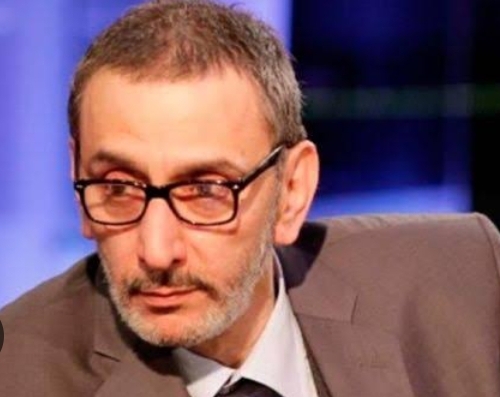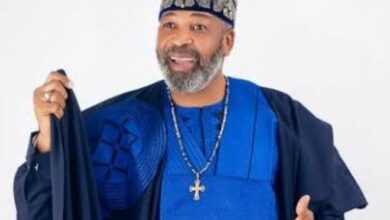Ziad Rahbani Biography – A Life of Music, Satire, and Social Commentary

Ziad Rahbani Biography
Contents
- 1 Ziad Rahbani Biography
- 2 Early Life and Family Background
- 3 Musical Career Beginnings
- 4 Theatrical Contributions and Political Satire
- 5 Political Views and Activism
- 6 Collaborations with Fairuz
- 7 Personal Life and Controversies
- 8 Legacy and Influence
- 9 Notable Works and Achievements
- 10 Conclusion
- 11 FAQs (Addressing Additional People Also Ask Queries)
- 11.1 What was Ziad Rahbani’s cause of death?
- 11.2 How did Ziad Rahbani die?
- 11.3 What is Ziad Rahbani known for?
- 11.4 Who are Ziad Rahbani’s parents?
- 11.5 What are Ziad Rahbani’s most famous plays?
- 11.6 What songs did Ziad Rahbani compose for Fairuz?
- 11.7 Who was Ziad Rahbani married to?
- 11.8 How did Ziad Rahbani influence Lebanese culture?
- 11.9 What are Ziad Rahbani’s political beliefs?
Ziad Rahbani was a Lebanese artist who changed the way people listened to music and watched theater in the Arab world. Born into a family of musical legends, he became a composer, playwright, and political thinker who used his talents to speak truth about society. His songs mixed soulful melodies with sharp political messages, while his plays made people laugh and think about Lebanon’s challenges. This biography dives into Ziad’s life, from his early days to his lasting impact, showing why he remains a beloved figure in Arab culture. Let’s explore the journey of a man who turned art into a voice for change.
Early Life and Family Background
Ziad Rahbani was born on January 1, 1956, in Antelias, Lebanon, a small town near Beirut. He grew up in a Maronite Christian family that was already famous for its music. His mother, Fairuz, was Lebanon’s most iconic singer, known for her angelic voice. His father, Assi Rahbani, was part of the Rahbani Brothers, a duo that created timeless songs and plays with his uncle, Mansour Rahbani. Growing up in this creative household shaped Ziad’s love for music and storytelling.
As a child, Ziad was curious and talented. He went to a Jesuit school, where he showed an early knack for music. At just 12 years old, between 1967 and 1968, he wrote a collection of writings called Sadiqi Allah (My Friend God). These early works hinted at his ability to think deeply and express big ideas. Living with parents like Fairuz and Assi gave Ziad a front-row seat to Lebanon’s golden age of music and theater, setting the stage for his own career.
Musical Career Beginnings
Ziad’s music career started early, and it was a big deal. At 17, he stepped up to compose a song for his mother, Fairuz, when his father, Assi, was sick in 1973. The song, Saalouni El Nass (The People Asked Me), became a hit and showed Ziad’s talent for blending traditional Arab sounds with Western jazz. This style, later called Oriental jazz, made Fairuz’s music feel fresh and modern, appealing to younger fans.
Ziad didn’t just write music, he also acted. He appeared in his family’s plays, like Al Mahatta, where he played a detective, and Mays el Rim, where he was a policeman. These roles gave him a taste of the stage and helped him understand how music and theater could work together. His early work laid the foundation for a career that would mix creativity with bold ideas about society.
Theatrical Contributions and Political Satire
Ziad Rahbani wasn’t just a musician, he was a master of theater, too. He started writing plays in 1973 with Sahriyah, performed at Bkennaya Theater. His plays, like Nazl el-Sourour (1974), Bennesbeh Labokra Chou? (1978), and Film Ameriki Tawil (1980), were different from anything Lebanon had seen. They used humor and satire to talk about serious issues like politics, inequality, and the Lebanese Civil War (1975 to 1990).
His plays often took place in strange settings, like asylums, to show how chaotic Lebanon was during the war. Ziad didn’t shy away from tough topics. He poked fun at corrupt politicians and religious divisions, which made some people uncomfortable but earned him fans who loved his honesty. His theater became a mirror for Lebanon’s struggles, blending laughter with truth to make audiences think.
Political Views and Activism
Ziad Rahbani was never afraid to share his beliefs. He called himself a communist and joined the Lebanese Communist Party, staying loyal to it his whole life. He also supported Lebanon’s resistance against Israeli occupation, especially after the 1976 Tall al-Zatar massacre, where right-wing militias attacked a Palestinian refugee camp. This event pushed Ziad to move to West Beirut, a more diverse and secular area, which shaped his views.
Ziad used his voice beyond music and theater. He wrote columns for newspapers like Al-Akhbar and spoke on radio shows, criticizing Lebanon’s corrupt leaders and religious divides. As an atheist in a religious country, he challenged traditions and called for unity and fairness. His bold ideas made him a hero to some and a troublemaker to others, but he never stopped speaking out.
Collaborations with Fairuz
Ziad’s work with his mother, Fairuz, is one of his greatest legacies. He composed songs for her that mixed jazz with Arab melodies, creating hits like Kifak Inta, Ouverture 83, and Bala Wala Chi. These songs were different from Fairuz’s older work with the Rahbani Brothers. Ziad’s modern sound and political lyrics made her music connect with younger audiences, turning her into a youth icon.
His collaboration with Fairuz wasn’t just about music, it was about bridging generations. Older fans loved Fairuz’s classic style, while younger ones were drawn to Ziad’s fresh take. Together, they created songs that spoke to Lebanon’s heart, blending beauty with messages about love, loss, and hope. Ziad’s work with Fairuz showed how music could unite people, no matter their age or background.
Personal Life and Controversies
Ziad’s personal life was as dramatic as his plays. In 1979, he married Dalal Karam, and their relationship inspired songs like Marba el Dalal and Bisaraha. But their marriage ended in divorce in 2009, and it wasn’t without drama. That same year, Ziad filed a lawsuit to disown Assi Rahbani Jr., claiming DNA tests proved the boy wasn’t his biological son. This public dispute shocked fans and added to Ziad’s controversial image.
Ziad also faced health struggles for many years, though he kept creating art. On July 26, 2025, he passed away in a Beirut hospital at age 69. His death was a huge loss for Lebanon, but his music and plays continue to inspire. Despite the controversies, Ziad’s honesty and passion made him a unique figure in Arab culture.
Legacy and Influence
Ziad Rahbani’s impact on Lebanon and the Arab world is undeniable. His music brought Oriental jazz to the mainstream, blending East and West in a way that felt new and exciting. His plays used humor to tackle serious issues, making people laugh while questioning their society. He wasn’t just an artist, he was a voice for those who felt ignored, speaking out against injustice and division.
After his death, leaders like Lebanon’s Prime Minister Nawaf Salam and actress Carmen Lebbos praised Ziad, calling him a symbol of truth and creativity. His work still resonates today, offering a window into Lebanon’s history and struggles. Young artists look up to Ziad for his courage to challenge norms, and his songs and plays remain timeless, connecting people across generations.
Notable Works and Achievements
Ziad Rahbani’s career was full of incredible achievements. His music included hits like Saalouni El Nass, Kifak Inta, and Bala Wala Chi, which brought jazz to Arab audiences. His plays, such as Nazl el-Sourour, Film Ameriki Tawil, and Bema Inno, mixed humor with sharp political commentary. These works captured the spirit of Lebanon during tough times, earning him a loyal following.
Beyond music and theater, Ziad wrote for newspapers like Al-Nida, Al-Nahar, and Al-Akhbar, sharing his thoughts on politics and society. He also hosted radio shows, where his wit and honesty shone through. Whether on stage, in songs, or in words, Ziad’s work left a mark on Arab culture, making him one of Lebanon’s greatest artists.
Conclusion
Ziad Rahbani was more than a musician or playwright, he was a storyteller who used art to reflect Lebanon’s joys and struggles. From composing songs for Fairuz to writing plays that challenged the status quo, he created a legacy that still inspires today. His fearless voice, sharp humor, and love for his country made him a cultural icon. To understand Lebanon’s heart, listen to Ziad’s music or watch his plays. They tell a story of hope, rebellion, and truth that will live on forever.
FAQs (Addressing Additional People Also Ask Queries)
What was Ziad Rahbani’s cause of death?
Ziad passed away on July 26, 2025, after battling long-term health issues. The exact cause wasn’t shared publicly, but he died in a Beirut hospital at age 69.
How did Ziad Rahbani die?
He died in a hospital in Beirut on July 26, 2025, after years of health challenges. His passing was mourned across Lebanon and the Arab world.
What is Ziad Rahbani known for?
Ziad is known for his Oriental jazz music, political satire plays, and bold commentary on Lebanese society. His work with Fairuz and plays like Nazl el-Sourour made him a cultural legend.
Who are Ziad Rahbani’s parents?
Ziad was the son of Fairuz, Lebanon’s iconic singer, and Assi Rahbani, a composer and part of the Rahbani Brothers, who shaped modern Arab music.
What are Ziad Rahbani’s most famous plays?
His most famous plays include Nazl el-Sourour (1974), Bennesbeh Labokra Chou? (1978), and Film Ameriki Tawil (1980), known for their sharp political humor.
What songs did Ziad Rahbani compose for Fairuz?
Ziad composed hits like Saalouni El Nass, Kifak Inta, Ouverture 83, and Bala Wala Chi for Fairuz, blending jazz with Arab melodies.
Who was Ziad Rahbani married to?
Ziad was married to Dalal Karam from 1979 to 2009. Their marriage inspired several of his songs but ended in a controversial divorce.
How did Ziad Rahbani influence Lebanese culture?
Ziad revolutionized Lebanese music with Oriental jazz and used his plays to critique politics and society, uniting generations with his art and ideas.
What are Ziad Rahbani’s political beliefs?
Ziad was a communist and atheist, supporting the Lebanese Communist Party and the resistance against Israeli occupation while criticizing Lebanon’s religious and political divides.



